
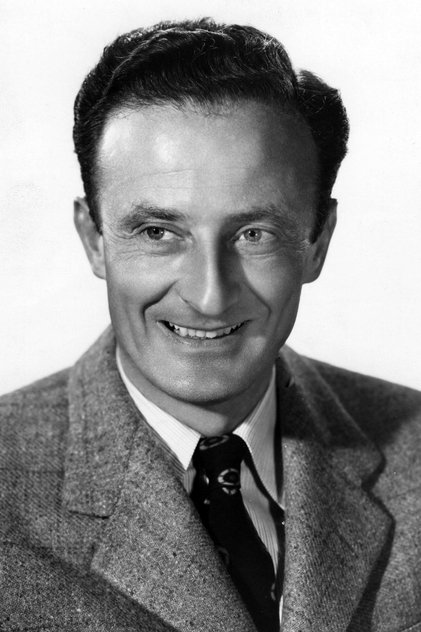
Fred Zinnemann
Born: April 29, 1907
Died: March 14, 1997
in Rzeszów, Poland
Died: March 14, 1997
in Rzeszów, Poland
From Wikipedia, the free encyclopedia
Alfred "Fred" Zinnemann (April 29, 1907 – March 14, 1997), born in the former Austro-Hungarian Empire, was an American film director. He won four Academy Awards for directing films in various genres, including thrillers, westerns, film noir and play adaptations. He made 25 feature films during his 50-year career.
Zinnemann was among the first directors to insist on using authentic locations and for mixing stars with civilians to give his films more realism. Within the film industry, he was considered a maverick for taking risks and thereby creating unique films, with many of his stories being dramas about lone and principled individuals tested by tragic events. According to one historian, Zinnemann's style demonstrated his sense of "psychological realism and his apparent determination to make worthwhile pictures that are nevertheless highly entertaining."
Some of his most notable films were The Men (1950), High Noon (1952), From Here to Eternity (1953), Oklahoma! (1955), The Nun's Story (1959), A Man For All Seasons (1966), The Day of the Jackal (1973), and Julia (1977). His films have received 65 Oscar nominations, winning 24.
Zinnemann directed and introduced a number of stars in their U.S. film debuts, including Marlon Brando, Rod Steiger, Pier Angeli, Julie Harris, Brandon deWilde, Montgomery Clift, Shirley Jones and Meryl Streep. He directed 19 actors to Oscar nominations, including Frank Sinatra, Montgomery Clift, Audrey Hepburn, Glynis Johns, Paul Scofield, Robert Shaw, Wendy Hiller, Jason Robards, Vanessa Redgrave, Jane Fonda, Gary Cooper and Maximilian Schell.
Fred Zinnemann died in London, England in 1997. He was 89 years old.
Alfred "Fred" Zinnemann (April 29, 1907 – March 14, 1997), born in the former Austro-Hungarian Empire, was an American film director. He won four Academy Awards for directing films in various genres, including thrillers, westerns, film noir and play adaptations. He made 25 feature films during his 50-year career.
Zinnemann was among the first directors to insist on using authentic locations and for mixing stars with civilians to give his films more realism. Within the film industry, he was considered a maverick for taking risks and thereby creating unique films, with many of his stories being dramas about lone and principled individuals tested by tragic events. According to one historian, Zinnemann's style demonstrated his sense of "psychological realism and his apparent determination to make worthwhile pictures that are nevertheless highly entertaining."
Some of his most notable films were The Men (1950), High Noon (1952), From Here to Eternity (1953), Oklahoma! (1955), The Nun's Story (1959), A Man For All Seasons (1966), The Day of the Jackal (1973), and Julia (1977). His films have received 65 Oscar nominations, winning 24.
Zinnemann directed and introduced a number of stars in their U.S. film debuts, including Marlon Brando, Rod Steiger, Pier Angeli, Julie Harris, Brandon deWilde, Montgomery Clift, Shirley Jones and Meryl Streep. He directed 19 actors to Oscar nominations, including Frank Sinatra, Montgomery Clift, Audrey Hepburn, Glynis Johns, Paul Scofield, Robert Shaw, Wendy Hiller, Jason Robards, Vanessa Redgrave, Jane Fonda, Gary Cooper and Maximilian Schell.
Fred Zinnemann died in London, England in 1997. He was 89 years old.
Movies for Fred Zinnemann...
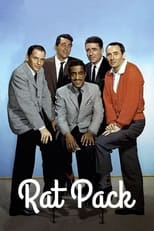
Title: Rat Pack
Character: Self (archive footage)
Released: January 11, 2022
Type: Movie
In the 1950s, a small group of artists monopolized the attention of the cameras and the public. Frank Sinatra, Dean Martin, Sammy Davis Jr., Joey Bishop and Peter Lawford together form the "rat pack": they sing the most popular hits of the moment, star in the most profitable Hollywood films and are already making a splash on television . This documentary, produced by a recognized specialist in the history of Hollywood, recounts the exceptional destiny of this informal group which flirted with the greats of this world, notably through Sinatra, personal friend of American President Kennedy.

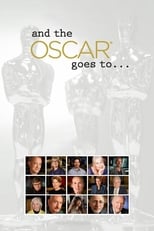
Title: And the Oscar Goes To...
Character: Self (archive footage)
Released: February 1, 2014
Type: Movie
The story of the gold-plated statuette that became the film industry's most coveted prize, AND THE OSCAR GOES TO... traces the history of the Academy itself, which began in 1927 when Louis B. Mayer, then head of MGM, led other prominent members of the industry in forming this professional honorary organization. Two years later the Academy began bestowing awards, which were nicknamed "Oscar," and quickly came to represent the pinnacle of cinematic achievement.


Title: Cinema's Exiles: From Hitler to Hollywood
Character: Self (archive footage)
Released: January 1, 2009
Type: Movie
Eight hundred German filmmakers (cast and crew) fled the Nazis in the 1930s. The film uses voice-overs, archival footage, and film clips to examine Berlin's vital filmmaking in the 1920s; then it follows a producer, directors, composers, editors, writers, and actors to Hollywood: some succeeded and many found no work. Among those profiled are Erich Pommer, Joseph May, Ernst Lubitsch, Fritz Lang, Billy Wilder, and Peter Lorre. Once in Hollywood, these exiles helped each other, housed new arrivals, and raised money so others could escape. Some worked on anti-Nazi films, like Casablanca. The themes and lighting of German Expressionism gave rise in Hollywood to film noir.

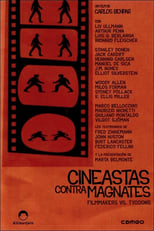
Title: Filmmakers vs. Tycoons
Character: Self (archive footage)
Released: July 17, 2005
Type: Movie
How the cinema industry does not respect the author's work as it was conceived, how manipulates the motion pictures in order to make them easier to watch by an undemanding audience or even how mutilates them to adapt the original formats and runtimes to the restrictive frame of the television screen and the abusive requirements of advertising. (Followed by “Filmmakers in Action.”)


Title: As I See It
Character: Self
Released: August 29, 1997
Type: Movie
A tribute to director Fred Zinnemann

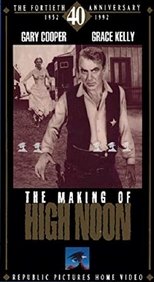
Title: The Making of High Noon
Character: Self
Released: January 2, 1992
Type: Movie
Documentary about High Noon featuring Fred Zinnemann and Stanley Kramer.


Title: Fred Zinnemann: A Director's Life
Character: Himself
Released: March 9, 1990
Type: Movie
Documentary on the director Fred Zinnemann and his work, in which he talks extensively about his career and experiences in the cinema from his early days in Paris and Berlin, and his arrival in Hollywood in 1929 to the present.

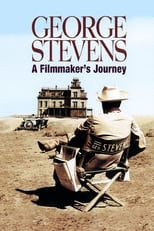
Title: George Stevens: A Filmmaker's Journey
Released: March 3, 1985
Type: Movie
Biography of the legendary filmmaker directed by his son.




Title: Hands Up!
Character: Self (1981 footage)
Released: January 21, 1985
Type: Movie
The reunion of a group of former medical students results in a flood of bitter memories.

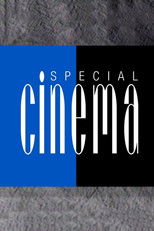


Title: The David Susskind Show
Character: Self
Released: January 18, 1959
Type: TV
The David Susskind Show is an American television talk show hosted by David Susskind. The program began its existence in 1958 as Open End, and was broadcast by WNTA-TV in New York City. The title referred to the fact that the program continued until Susskind or his guests were too tired to continue late on a Sunday night.


Title: The Oscars
Character: Self
Released: March 19, 1953
Type: TV
An annual American awards ceremony honoring cinematic achievements in the film industry. The various category winners are awarded a copy of a statuette, officially the Academy Award of Merit, that is better known by its nickname Oscar.

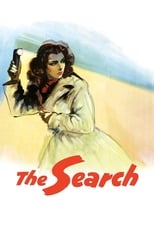
Title: The Search
Character: Interpreter (uncredited)
Released: March 26, 1948
Type: Movie
In postwar Germany, a displaced Czech boy, separated from his family during wartime, is befriended by an American GI while the boy's mother desperately searches for him.


Title: Bambi Awards
Character: Self
Released: January 1, 1948
Type: TV
The Bambi, often called the Bambi Award and stylised as BAMBI, is a German award presented annually by Hubert Burda Media to recognize excellence in international media and television to personalities in the media, arts, culture, sports, and other fields "with vision and creativity who affected and inspired the German public that year", both domestic and foreign. First held in 1948, it is the oldest media award in Germany. The trophy is named after Felix Salten's book Bambi, A Life in the Woods and its statuettes are in the shape of the novel's titular fawn character. They were originally made of porcelain until 1958, when the organizers switched to using gold, with the casting done by the art casting workshop of Ernst Strassacker in Süßen.


Title: All Quiet on the Western Front
Character: German Soldier / French Ambulance Driver (uncredited)
Released: April 29, 1930
Type: Movie
When a group of idealistic young men join the German Army during World War, they are assigned to the Western Front, where their patriotism is destroyed by the harsh realities of combat.
